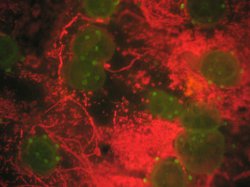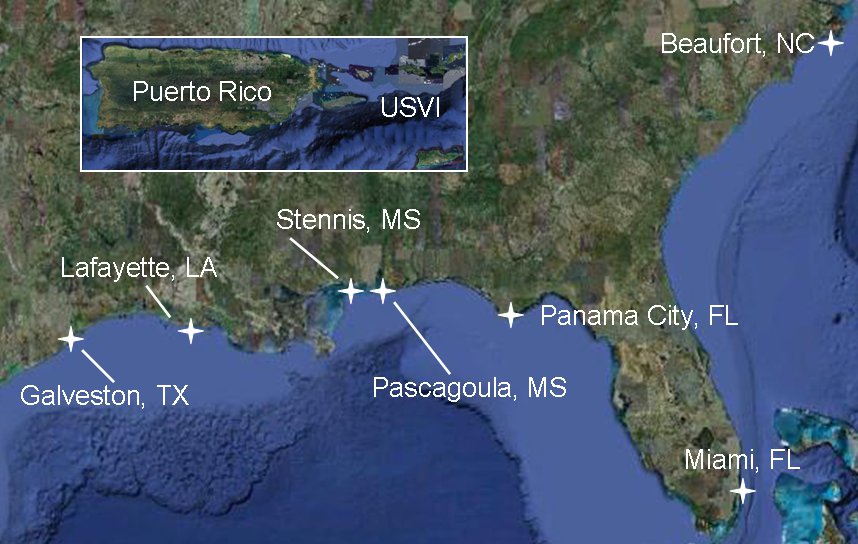- Home
- About Us
- Species
- Research & Data
- Publications & Forms
- Education & Outreach
- For Fishermen/Dealers
- For SEFSC Personnel
Beaufort, NC Lab
Galveston, TX/Lafayette, LA Lab
Miami, FL Lab
Panama City, FL Lab
Pascagoula/Stennis, MS Labs
Welcome to NOAA's Southeast Fisheries Science Center
The Southeast Fisheries Science Center (SEFSC) conducts multi-disciplinary research programs to provide management information to support national and regional programs of NOAA's National Marine Fisheries Service (NMFS). The SEFSC, headquarted in Miami, FL, is organized with divisions and labs across the southeast region of the U.S.:
- Beaufort, NC Lab
- Galveston, TX and Lafayette, LA Labs
- Miami, FL Lab
- Panama City, FL Lab
- Pascagoula, MS and Stennis, MS Labs
Recent News and Hot Topics
 |
Growing Hypoxic Zones Reduce Habitat for Billfish and Tuna Billfish and tuna, important commercial and recreational fish species, may be more vulnerable to fishing pressure because of shrinking habitat according to a new study published by scientists from NOAA, The Billfish Foundation, and University of Miami Rosenstiel School of Marine and Atmospheric Science. |
|
 |
NOAA Launches Online Library for Deepwater Horizon Oil Spill Information NOAA launches a web archive of the maps, wildlife reports, scientific reports, and other previously released public information used by emergency responders, fishermen, mariners, and local officials during the Deepwater Horizon oil spill. |
|
 |
Atlantic bluefin tuna may be listed under the Endangered Species Act; 90-day finding on petition A petition from Center for Biological Diversity presents substantial scientific information indicating the Atlantic bluefin tuna may be warranted for ESA listing. |
|
 |
Coral spawning in the Florida Keys Mountainous star coral (Montastraea faveolata) and elkhorn coral (Acropora palmata) were studied in a multi-institutional effort to document coral spawning from August 26-September 1, 2010, in the upper region of the Florida Keys National Marine Sanctuary (FKNMS). |
|
 |
Circle Hook Symposium: May 2011 in Miami, FL The goal of the symposium is to produce an updated, science-based assessment of the management and conservation utility of circle hooks in commercial and recreational fisheries around the globe. In order to fully realize the conservation benefits of circle hook use, greater consensus among the international scientific, management, and conservation communities is required. |
|
» Archive of Hot Topics, News, and Events |
||

Labs of the SEFSC
How Do I...?
- Report a stranded/ beached whale, dolphin, or turtle
- Report a lionfish sighting
- Access SouthEast Data, Assessment, and Review (SEDAR)
- Report for my fishing/dealer permit requirements
- Report a retrieved tag
- Find current fishery closures
- Adopt a billfish
- Register my billfish tournament
- Apply for a permit
- Visit the SEFSC library
- Find NOAA staff
- Apply for grant funding
- Request permission to use a photo found on the website
- Find It? Provide Website Feedback



